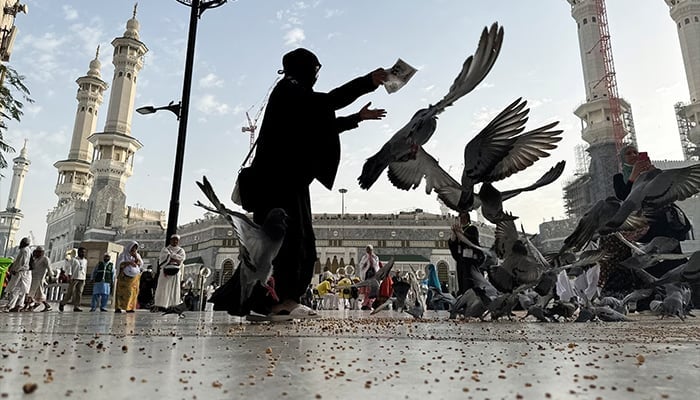
- Female pilgrims must submit an affidavit for registration for the 2025 Hajj.
- The CII conditionally allowed women to perform the Hajj without a mahram.
- The Saudi government has allocated a quota of 179,210 Hajj pilgrims to Pakistan.
The Ministry of Religious Affairs said Pakistani women would need the consent of their husbands or parents to register for the annual Hajj, although they would be allowed to travel to Saudi Arabia for the pilgrimage without a male guardian (mahram ) by the Council of Islamic Ideology (CII).
A 2025 Hajj policy document obtained by Geo News read: “No mahram will be required from women for Hajj 2025, in accordance with the decision of the CII 2023, subject to the presentation of an affidavit to the effect: i) their parents or husbands permit them, ii) they are part of the reliable group of women and, iii) there is no threat to their dignity.
The CII had conditionally allowed Pakistani women to perform Hajj without a mahram in November 2023.
In response to a question from the Ministry of Religious Affairs, the CII had previously said that Sharia law provides that a woman can perform Hajj or Umrah without a mahram, according to the Jafria, Maliki and Shafi’i schools of thought.
A woman whose parents or husband permit it can perform Hajj without a mahram, according to the Jafria, Maliki and Shafi’i schools of thought, the council responded to a question from the Ministry of Religious Affairs regarding women’s pilgrimage, adding that The women pilgrims must travel in the company of trustworthy women in a group.
It is worth highlighting here that in 2021, the Saudi government had allowed women across the world to perform Hajj and Umrah without a mahram.
Regarding children, Pakistan’s Hajj 2025 policy states that minors below the age of 12 will not be allowed to participate in the pilgrimage as per instructions issued by the Saudi government.
Special citizens and disabled candidates must be accompanied by an attendant to perform Hajj, the statement added.
Meanwhile, applicants who are barred by a court from traveling abroad or placed on an exit control list (ECL) would not be allowed to proceed with Hajj.
Under the government scheme, “a hardship quota of 1,000 seats will be reserved to accommodate divided or broken families, mahram for successful women, attendants of disabled/special people and any other difficult needs.”
Hardship quota candidates will be selected in accordance with the guidelines issued by the ministry.
It is worth noting that the Saudi government has allocated Pakistan a quota of 179,210 pilgrims which will be distributed equally between government and private programs in line with the country’s Hajj policy.
